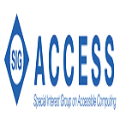Among the essential elements of knowledge management is the use of information and data, as well as the knowledge, skills, and abilities inherent within communities, as well as their ideas, commitments, and motivations for making good decisions as emerging technologies become more prevalent. Numerous leading social scientists in this field have asserted that organisational knowledge should be regarded as a strategic asset. There is a growing awareness of the importance of gathering, locating, capturing, and sharing collective knowledge and expertise of societies, and societies are urged to develop effective and efficient methods of gathering, locating, capturing, and sharing that knowledge in order to deal with problems and to benefit from opportunities. People living in many countries and regions are interested in implementing knowledge management processes and technologies, and many of them have included knowledge management as an integral part of their overall development strategies. The management of knowledge plays an increasingly important role in global economic development (Bell, 1973, 1978). In order to remain relevant in the modern world, organisations should not ignore knowledge management and emerging technologies.
翻译:知识管理的基本要素包括:利用信息和数据,以及社区内固有的知识、技能和能力,以及随着新兴技术的日益普及,他们的思想、承诺和动机,以便作出良好的决策。这一领域的许多主要社会科学家都认为,组织知识应当被视为一种战略资产。人们日益认识到,收集、查找、获取和分享社会和社会的集体知识和专门知识十分重要。敦促社会制定切实有效的方法,收集、查找、获取和分享这种知识,以便解决问题并从中获益。许多国家和地区的人民对实施知识管理进程和技术感兴趣,其中许多人已将知识管理作为其总体发展战略的组成部分。知识管理在全球经济发展中发挥着越来越重要的作用(1973年、1978年,贝尔)。为了在现代世界中保持相关性,各组织不应忽视知识管理和新兴技术。





